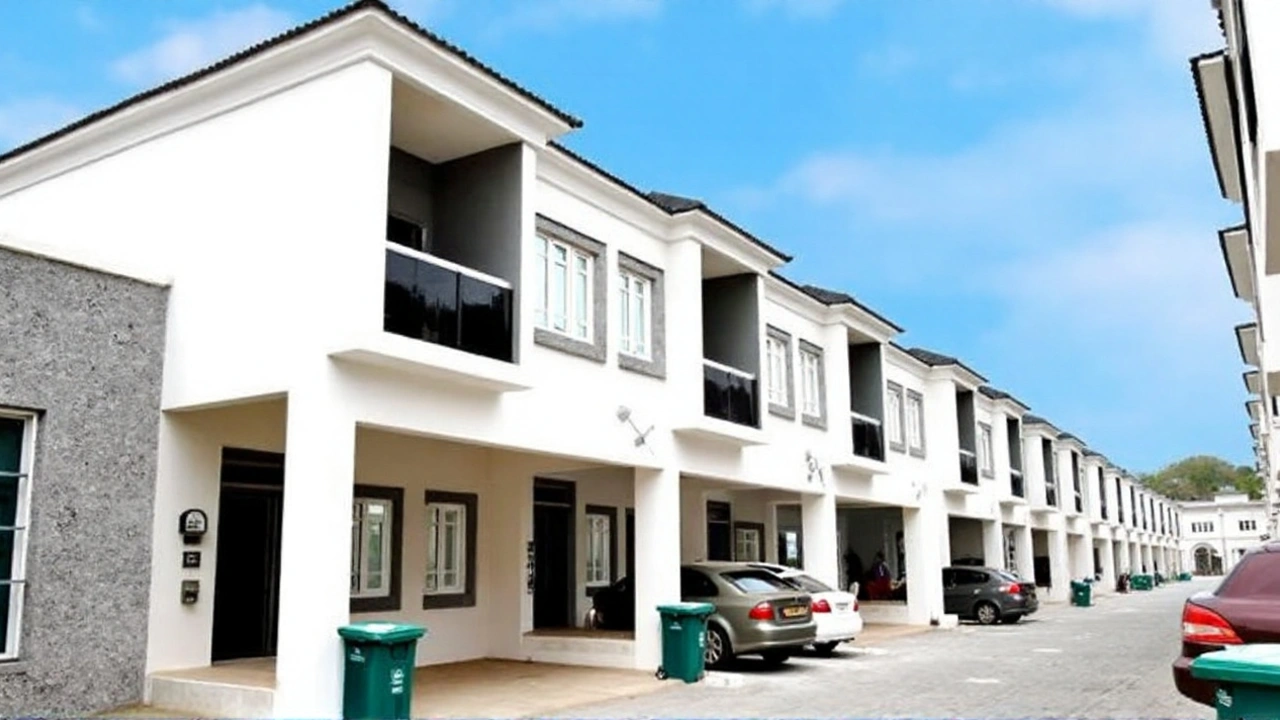
Lagos State Names and Shames 176 Illegal Estate Projects
The real estate world in Lagos just got a sharp reality check. Lagos State officials have marked 176 estate projects as illegal, blasting developers who went ahead without the all-important layout approvals. If you’ve noticed construction mushrooming across places like Eti-Osa, Ajah, Ibeju-Lekki, and Epe, well, a good chunk of it isn’t properly documented—or legal right now.
The state didn’t tiptoe around this. They’ve slapped down a strict 21-day deadline for developers to turn in their paperwork. The government’s ultimatum came out during a press statement held early August 2025. Developers must bring their documents to the Ministry of Physical Planning and Urban Development at Alausa, Ikeja. Failure to comply? Expect sanctions and "enforcement actions" — they’re not sugarcoating it.
This isn’t just about red tape. Permanent Secretary Oluwole Sotire spelled out why Lagos is cracking down now: It’s about keeping the city safe, functional, and honestly, less chaotic. The T.H.E.M.E.S+ Agenda, which stands for goals like Traffic Management, Health, Environment, and more, has one aim—to transform Lagos into an ordered and resilient city. Allowing estates to pop up anywhere, without approvals, throws that ambition off balance.

From Big-Name Estates to Smaller Developments: No Exceptions
Some of the developments made the official list, and big names aren’t spared. Adron Homes (Elerangbe), Aina Gold Estate (Okun-Folu), Diamond Estate (Eputu), Prime Water View Garden (Ikate Elegushi), and Royal View Estate (Ikota) are now in hot water. It’s not just fringe properties—it’s developments people often trust and invest their life savings in.
The illegal status boils down to one core point: lack of layout approvals. That means these projects haven’t been officially reviewed for things like safety, environment impact, basic services, or whether they fit into the wider plan for Lagos. Skipping these approvals doesn’t just break the rules. It creates risks that can affect everyone, from residents to neighbors and the entire city’s infrastructure.
If developers don’t fix things soon, the government has warned they’ll hit them with real consequences. That could mean stopping construction outright, legal action, or even shutting down sales. Some past cases in Lagos have seen bulldozers roll in if rules were totally ignored.
It’s not all doom for developers, though. Regularization is on the table. The process is pretty straightforward: turn in your documents, show your project’s legitimacy, and have the plans inspected by the ministry. Basically, follow the same process you should’ve followed from day one.
Lagos State is also reminding everyone in real estate—agents, brokerages, developers—to register with the Lagos State Real Estate Regulatory Authority (LASRERA). It’s not just another hoop—it’s now mandatory for anyone wanting to do business above board in town.
This clampdown isn’t happening in a vacuum. Pressure has been mounting as more Lagosians complain about housing scams, half-finished projects, and estate disputes. With sprawling urban development and soaring population, the government is clearly saying there won’t be shortcuts anymore.
So if you’re house-hunting, already invested in any of these areas, or thinking about putting your money into that "too good to be true" offer—now’s the time to do some serious homework. This new push could shake up where it’s actually safe to buy, and who you can trust for your next move.
12 Comments
Sara Lohmaier August 6, 2025 AT 03:00
Finally someone's holding developers accountable. I've seen too many 'luxury estates' turn into ghost towns with broken pipes and no sewage. This is the kind of clean-up Lagos needed for years. Hope they follow through.
Sara Lohmaier August 6, 2025 AT 22:37
Layout approvals? Please. In 2025? The bureaucracy is still stuck in 2008. You want order? Ditch the paper. Go digital. Biometric land registry. Blockchain titles. Stop asking for wet signatures like we're in the 90s.
Sara Lohmaier August 8, 2025 AT 16:44
I SWEAR TO GOD if this is another 'Lagos is cleaning up' PR stunt like the 2019 one where nothing happened... I'm going to scream. And also who even is Adron Homes?? I thought they went bankrupt?? 😭
Sara Lohmaier August 10, 2025 AT 09:22
This is what happens when you let unregulated capitalism run wild. Infrastructure collapse? Check. Water shortages? Check. Flooding because drainage wasn't planned? Check. Lagos needs this. No exceptions. No 'but my uncle owns land' excuses. The rule of law isn't optional.
Sara Lohmaier August 11, 2025 AT 18:44
So... developers who didn't follow rules get punished? 🤯 Mind blown. Next they'll tell us murder is illegal. Also, I'm sure the officials who approved these projects in the first place are just chilling at the beach. 😏
Sara Lohmaier August 12, 2025 AT 05:52
This is a necessary step toward sustainable urban development. The lack of proper planning has led to systemic inefficiencies that affect every citizen. The T.H.E.M.E.S+ Agenda is not just policy-it's a framework for dignity. Respect for process is respect for people.
Sara Lohmaier August 12, 2025 AT 13:43
Wait-so you're telling me that if you didn't get a 17-page form signed by 9 different departments before pouring concrete, it's illegal? But the roads leading to these estates? Still dirt. The water? Contaminated. The electricity? Out 14 hours a day. So the real crime is paperwork, not chaos?
Sara Lohmaier August 13, 2025 AT 08:07
I don't care how many estates they shut down. The real issue is that the government doesn't have the capacity to enforce this. They'll pick the easy targets-the small developers-and let the big ones with political connections slide. This is performative governance. I'm not impressed.
Sara Lohmaier August 15, 2025 AT 02:55
They should've done this five years ago.
Sara Lohmaier August 16, 2025 AT 13:47
YESSSSS! This is the energy we need! I bought a plot in Ibeju-Lekki last year and was nervous AF because everything felt sketchy. Now I feel like I dodged a bullet. If you're thinking of investing, check LASRERA. DO NOT SKIP THIS. I'm telling you, your future self will thank you 🙏
Sara Lohmaier August 17, 2025 AT 23:35
The regularization process outlined by the Ministry is both fair and practical. Developers who have invested capital and labor deserve a pathway to compliance. What matters is transparency, documentation, and adherence to zoning standards. This approach balances accountability with opportunity, and sets a precedent for other African metropolises.
Sara Lohmaier August 19, 2025 AT 06:54
As someone who's been in real estate in Nigeria for 12 years, I've seen too many families lose everything because of fake titles and unapproved estates. This is long overdue. But please-make the regularization process simple. Don't make it another nightmare with 50 forms. Just one portal. One fee. One clear path. We can fix this if we keep it human.